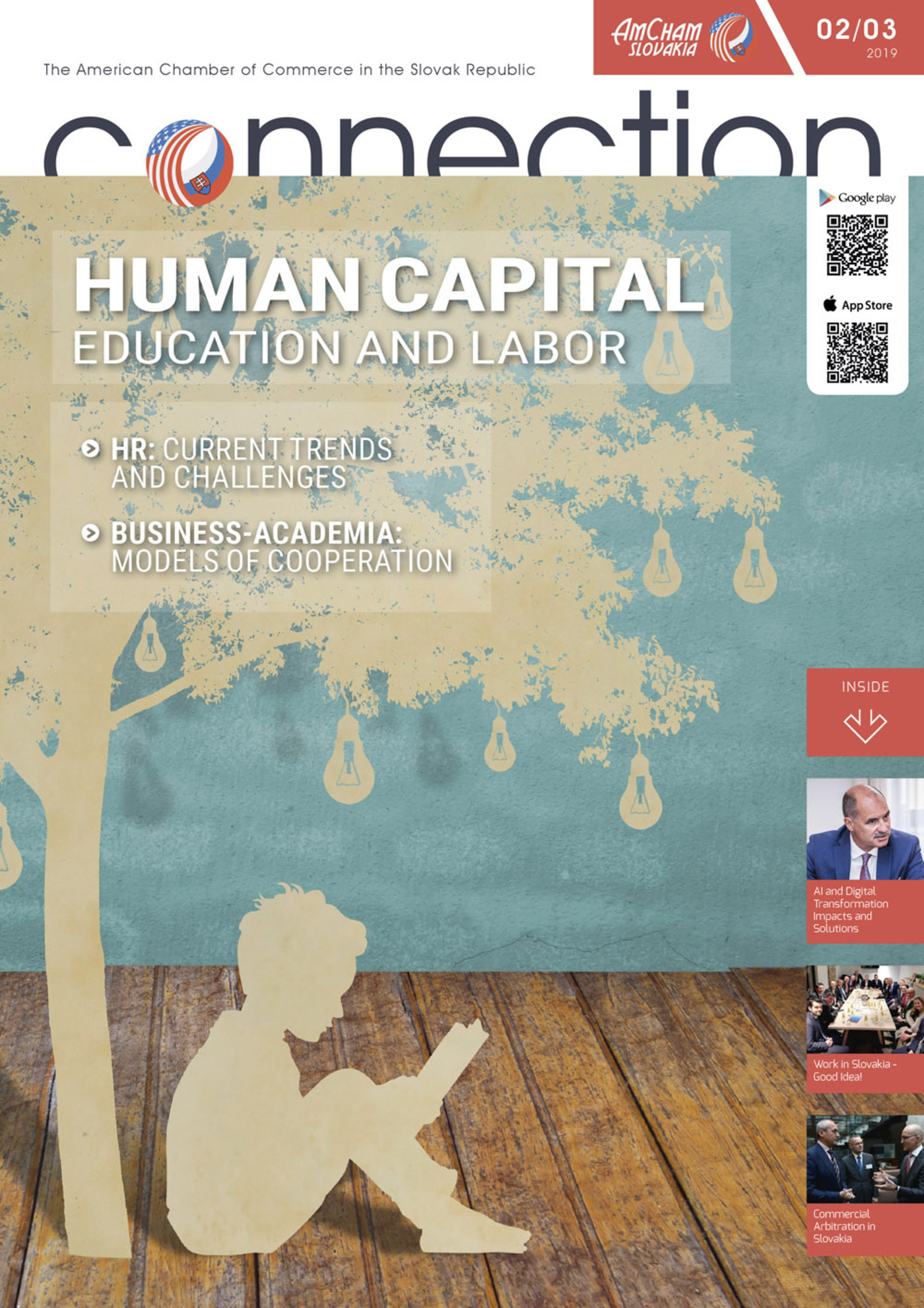Its aim is to monitor the current status of the market and to detect various remuneration trends and HR challenges in all aspects of work life including gender pay gap discrimination. Based on its findings, many employers in Slovakia face the problem of people transformation in terms of employee motivation, retention and repositioning as well as the problem of skills gap identification and training.
According to the 2018 edition of the study, which covered 281 companies operating in 17 sectors, 56,5% of the companies have set a target position at which they remunerate their employees in comparison with the Slovak labor market. Majority of these companies mentioned market median as their target position for remuneration. Regarding salary reviews, most companies in Slovakia review salaries on annual basis. In most cases, strategy for salary reviews is determined by companies’ headquarters, which are often located outside of Slovakia. Many companies based in Slovakia use the results of the study as basis when negotiating with their mother company salary increases and the distribution of financial resources for remuneration and benefits.
Despite the fact that the costs associated with human capital are very high, few companies in Slovakia measure the efficiency of their human capital management. PwC’s HR Controlling study is helping the companies to assess their human capital performance by providing them with a comprehensive analysis and key HR indicators. In 2018, companies increased base salaries by 4,4% on average which is more than what they originally planned (3,8%). For year 2019 companies are planning to increase base salaries by 3,8% on average (PayWell 2018). Above planned increase in base salary indicates that Slovak employers have the tendency to underestimate the speed of the growth of salaries on the Slovak market.
Slovak companies motivate their employees to improve their performance by using a special type of financial compensation linked to outstanding performance, team leadership and/or to innovative ideas. This type of compensation is becoming more and more popular. The pay out of such bonuses, with the exception of bonus for team coaching, which is mostly done on monthly basis, is most of the time irregular, meaning that the companies do not wait until the end of the year to reward their outstanding employees.
The employees are aware that in order to progress vertically and/or horizontally just “showing up at work” is not enough. The employee evaluation methods, which have an impact on amount of variable pay (82,8%), determination of training and development needs for individual employees (81,9%), salary increase (79,2%) and promotion opportunities (74,9%), serve as a highly effective motivational tool for the employees.
Another big challenge that Slovak employers face is to ensure and maintain equal remuneration for women and men for work of equal value. Although the social movement towards equal pay has been gaining an increasing support from CEOs and upper management, Slovak performance on female empowerment remains below the OECD average. The Slovak Republic has adjusted and strengthened its legislative frameworks for gender equality in accordance with the EU regulation. The Labor Code clearly prohibits discrimination on grounds of sex and it sets the obligation of equal pay for equal work or work of equal value for women and men. Nonetheless, the gender pay gap in Slovakia persists at rate of 19% in 2016 (Eurostat statistics) and 18% in 2018 (according to Slovak Ministry of Labor, Social Affairs, and Family); it is the sixth largest difference in the EU.
Based on the data from the global PwC study ‘Seeing is believing’, the main reason for gender pay discrimination considered by women is in their status. They perceive gender, ethnicity and age as the main barriers to their career development. Approximately 53% of women who participated in the study fear that parenting would affect their career and pay because it shortens their work practice. Thus, it increases the probability that they will be overlooked for career-advancing opportunities. Thereafter, 80% of women consider having the flexibility to balance their career and personal life as highly important attribute at work.
As reported by PayWell 2018 study, 81,3% of companies offer flexible working time to some groups of their employees. The focus on employee wellbeing is viewed as an investment rather than cost, leading to maximized performance. Due to changing labor force’s expectations, the provision of flexible working options is often regarded by professional talent as a matter of necessity when looking for the employment.
One of the ways how the companies can prove their commitment to equal pay between men and women is through Equal Pay Certification process that allows companies to obtain internationally recognized certification in remuneration from the Swiss Equal Salary Foundation through PwC, which has an exclusive right to use and deliver its methodology. The certification confirms the companies’ respect towards gender equality, shown by providing the same pay for women and men for the same work or for a work of equal value. The key success factor for the implementation of continuous commitment processes to equality would be setting up management support at all levels. Formal and informal support networks, policies and procedures would be essential.
As we see, employers in Slovakia face many challenges when it comes to human resources. This article focused on current challenges and trends in the area of compensation, benefits and equal pay. Nevertheless, in order to stay competitive companies need to interconnect their overall strategy with needs of employees and put emphasis on building of trust, transparency and continuous staff development.
Ľudmila Guerin, Leader of HR Consulting Services, PwC



Follow us